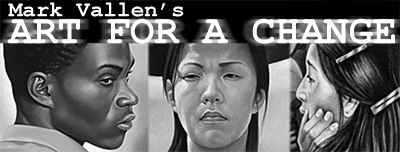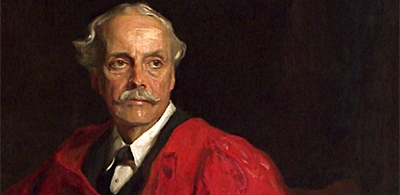Free Admission to American Museums!
I am sure many will favorably view French President Nicolas Sarkozy’s recent announcement that all museums in France will soon be free for school teachers and for visitors under 25 – but careful scrutiny of the plan should be made before praising it. This story is especially relevant to the American arts community, which fully expects a sweeping new national arts policy from the incoming Obama White House.
On January 13, 2009, President Sarkozy announced his arts plan in an address made before members of France’s cultural sector. The plan, starting April 4, 2009, not only gives teachers and the young free entry to all museums, it pledges an annual 100 million euros ($161 million) for the operation and maintenance of national museums and heritage sites, and the formation of a new advisory group dedicated to promoting artistic creation. Also included in Sarkozy’s plan is the building of a new national museum – the Museum of French History.
To the casual observer the Sarkozy plan seems enlightened, but the French President may have an ulterior political motive for making his announcement at this particular time. That it took two years into his presidency before he came up with a serious national plan for the arts speaks volumes. On the one hand I see the project as insufficient – why not free admission to French museums for all the French people and not just a select demographic? The entire plan strikes me as a strategy designed to turn around plummeting approval ratings, particularly amongst the young. On the other hand, I wish that American governmental arts policy could be so advanced!
President Sarkozy’s national arts plan is the type of announcement that will no doubt make the arts community in the U.S. speculate as to why such a program could not be enacted under the new administration of Barack Obama. Why not indeed. America’s museums are not just repositories of the nation’s cultural heritage; their holdings give evidence to the greatness of a people, and as such, the people should have complete access to the nation’s treasures – free of charge.
On May 10, 1939, a crowd of 6,000 gathered at New York’s Museum of Modern Art to celebrate the museum’s tenth anniversary and reopening at its new facilities. Franklin D. Roosevelt addressed the multitudes by radio broadcast – saying in part the following:
“Art in America has always belonged to the people and has never been the property of an academy or a class. The great Treasury projects, through which our public buildings are being decorated, are an excellent example of the continuity of this tradition. The Federal Art Project of the Works Progress Administration is a practical relief project which also emphasizes the best tradition of the democratic spirit. The W.P.A. artist, in rendering his own impression of things, speaks also for the spirit of his fellow countrymen everywhere. I think the W.P.A. artist exemplifies with great force the essential place which the arts have in a democratic society such as ours.”
And what would FDR think of MoMA charging $20 for a general admission ticket during today’s hard economic times? What would he say about America’s students, the elderly, and those living on fixed incomes, the underemployed, the unemployed – the employed for goodness sakes! – being unable to visit their local museums because of high ticket prices? Perhaps he would have to rethink his position about American art not being “the property of an academy or a class.” I realize that most U.S. museums now offer free admission at least one day each month, usually underwritten by this or that major corporate sponsor, but that clearly is not enough – especially when compared to developments in France.
As exemplified by reports from The New York Times and ARTINFO, most press accounts of Sarkozy’s announced arts plan have been perfunctory, completely without background information, context, comment or analysis. They read like republished press releases from President Sarkozy’s office. Sarkozy’s announcement is not entirely a surprise to me. In January, 2005, I twice reported on the activities of Louvre Pour Tous (Louvre For All), a grassroots movement in France that seeks the “cultural democratization” of French cultural institutions and has as its major demand, the abolishment of all admission prices to the Louvre.
On Jan. 14, 2009, Louvre Pour Tous posted an article on its website that stated part of Sarkozy’s current plan had in reality already been “decided and made public one year ago”, contending that at a 2008 meeting of France’s Council of Ministers, Sarkozy’s Culture Minister Christine Albanel had announced teachers would be exempt from paying museum entry fees. As a matter of fact, the Reuters news agency reported a year ago that starting Jan. ’08, “French national museums including the Louvre in Paris will let in many visitors free in the coming months”, and that “some national museums will offer completely free admission to their permanent collections, while others will offer it to those under 26, one evening a week.” Granted this experiment in free admission to France’s museums only lasted for a six-month period, but why did the Sarkozy government halt the program in June ’08, only to propose a more robust scheme to start this coming April 2009? What assurances exist that Sarkozy will not also terminate this latest program? Only the demands of a mobilized citizenry!
Sarkozy’s proposed advisory group on the arts ostensibly has as its mission the creation of incentives and a supportive social environment for artistic production, interestingly enough, Sarkozy will head the new council himself, along with Culture Minister Christine Albanel and film producer Marin Karmintz. Rather than simply a body set up to help implement government arts policy, the new council has the appearance of being a personal tool of Monsieur Sarkozy. Likewise, his projected Museum of French History appears to be nothing more than a vanity project meant to stamp his legacy on the vistas of Paris. As the French historian Alain Decaux so eloquently put it: “I don’t see the use, quite simply, because Paris is one immense museum of the history of France.”
Presidential candidate Senator Barack Obama and French President Nicolas Sarkozy, meet at a joint press conference in Paris, July 25, 2008. Obama commented “I can’t imagine somebody who better captures the enthusiasm and energy of France than Sarkozy.” Obama went on to say that Sarkozy was the reason Americans decided to call “French fries ‘French fries’ again,” a remark that referred to the decision of the U.S. Congress to rename “French Fries” on the Congressional cafeteria menu to “Freedom Fries”, as an expression of anger over former French President Jacques Chirac’s opposition to the 2003 U.S. invasion and occupation of Iraq. Sarkozy backed the Bush invasion of Iraq.
Sarkozy’s right-wing centrism dovetails with President-elect Obama’s centrism. Despite the shrill and preposterous accusations from the American right-wing that Obama is a wild-eyed socialist, the President-elect is not going to govern from the left. He is a so-called “pragmatist” who will maneuver the ship of state in a direction that is neither liberal nor conservative, but a course nevertheless designed to guard the interests of the capitalist system, in other words, Obama will now be CEO of America, Inc. All good things are not simply going to flow from the White House – they must be demanded, insisted upon – just as workers pressure management for better working conditions when they go out on strike.
If American artists want a WPA-style federal arts program for the 21st century that will provide employment for thousands of cultural workers, if they want the nation’s museums to be free of all admission charges, if they want the government to invest hundreds of millions of dollars into expanding arts and culture programs instead of pouring the nation’s wealth into the rat hole of endless war – then American artists are going to have to challenge the CEO of America, Inc. to deliver the goods.




